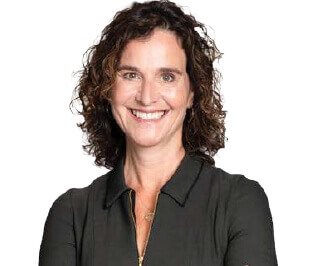My 2020 wish-list
Zeros have an odd effect on us humans. Birthdays that end in them get us promising all sorts of things to ourselves and, if we’re incautious, letting on to others. I’ll lose five stone. I’ll learn Cantonese. This will finally be my Patagonia walkabout time.
And when a new year lands on a zero, it finds itself bearing the weight of the hopes and predicted changes of the decade that will forever carry its name: the nineties, the noughties, the tens.
Well, we now have a year ahead with not just one, but two big, round zeros, and a come-on symmetry too. It practically begs for a list. And it leaves no argument for how many items should be on it.
So, let’s not muck about, here are the 20 things that I hope will change in our discipline by this time next year. My 2020, no-particular-order, branding and marketing wish-list:
1. Research agencies will stop making sweeping recommendations. Guys, it’s enough to provide a debrief, and to acknowledge that it represents a partial view of one constituency at one point in time. But business-wide recommendations require you to have done more than talk to a couple of dozen consumers – as anyone who works in finance, operations or HR will be anxious to tell you.
2. The evidence-based school down there in South Australia will point out the error of our ways without impugning the purity of our motives.
3. US marketers working on global brands will resist the urge to make baseball metaphors. They can lose a bit in translation in a regional workshop in Bangalore.
4. Everyone in any given marketing department will intimately understand how their product or service works. They’ll have imbibed the clinical data, worked through the instruction manual, done real-job stints in the kitchen, factory or contact centre. There may be times when ignorance is bliss, but struggling your way through a faltering briefing to an information-hungry group of advisers, with your line manager looking on, isn’t one of them.
5. Brand-owning companies with a long history of undistinguished creative work will stop blaming their agency for undistinguished creative work. Look in the mirror, marketers: it might, you know, have something to do with you.
6. Marketers and agencies will use simple, established terms for simple, established concepts. ‘Squad’ isn’t the new ‘team’. ‘Growth hacking’ isn’t a smarter way to say ‘tactics’. And ‘Plannerfesto’, which I heard in a meeting last week, isn’t anything I would be in a hurry to hear again.
7. Cannes will come and go and no one will take very much notice.
8. The heated, and sometimes spiky, argument over the respective virtues of long-term brand-building versus short-term commercial gain will be settled in favour of both.
9. Another long-smouldering debate will also yield to reason: on the merits, or otherwise, of brand purpose. Marketers in companies with a stated purpose will honour it. Marketers in companies without one will stop wondering if they are missing a trick. And cynics will stop lampooning leaders who, with the best intentions, and fully cognisant of the potential sacrifices involved, choose to elevate certain ideals above purely commercial considerations.
10. Ad agency people invited to participate in a brand workshop will remember to take out a big layout pad the night before and hand-write on it: Brand building is more than communications. Brand building is more than communications. Brand building is more than communications. Brand building is more than…
11. Marketers, agency people and research company personnel will show respect to the consumers they observe through the viewing-facility one-way mirror. You can see and hear them; they cannot see or hear you: it can be tempting to exchange knowing looks or make a cheap remark. Consumers are people, not punters. Any form of disrespect, even if mild and unseen, has a way of spilling over, somewhere down the line, into the wider brand-customer relationship.
12. Marketers will re-analyse the consumer data they already hold, before commissioning anything new. People don’t change that much. You’re already sitting on more insight than you think.
13. But… everyone will be strict about that word ‘insight’. It should amount to a revelatory understanding of people and their lives.
14. Marketing leaders in big corporations will stop demanding that the teams who inhabit the cubicles inside the steel-and-glass skin of the 27th floor behave like entrepreneurs in a startup.
15. Junior marketers will prioritise the thinking over ‘the deck’. Witty images and snazzy animation never did compensate for vacuity where numerical precision and imaginative interpretation should be. Applies to some senior marketers, too, come to think of it.
16. Digital will be seen as part of the toolkit. Not the toolkit.
17. No one will start a sentence with ‘Branding is all about…’. It never is. If branding were a sport it would be the decathlon.
18. No planner will present a segmentation strategy, no matter how cutely named the segments, unless they have read, re-read and thoroughly internalised the late Professor Doyle’s five segmentation criteria.
19. Webinars will not be categorised as ‘working meetings’; they have their uses, but let’s recognise their limitations.
20. The cultural and political backdrop with which marketers had to contend in 2019 will become more benign. A confident wish based on the observation that it would be hard to get much worse.
It’s a wish-list, remember. These aren’t predictions, and the potential changes I feel most passionately about might well run counter to yours. That’s marketing for you.
But I can’t escape the feeling that our discipline is in a rut right now and could do with even an artificial reason for a new kick-start.
What do we have to lose by seeking to do things better, more thoughtfully, differently? A big, round zero.

